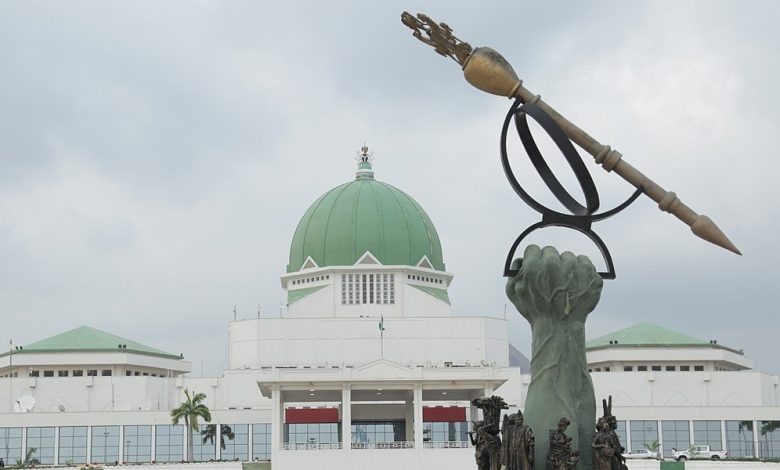
Senator Ita Enang, a former presidential liaison officer to the National Assembly, says the National Assembly is to be blamed for the current economic challenges facing the country.
According to Enang, the failure of the National Assembly to discharge its mandate is largely responsible for the country’s huge debt profile and minimal progress across various sectors of the economy.
The former senator stated this at the public presentation of Oversight Magazine in Abuja on Thursday, May 2.
Politics Nigeria reports that Enang served as chairman of both the House and Senate Committees on Rules and Business said the National Assembly.
“It is the fault of the National Assembly for failing to do their oversight function. If the National Assembly were able, they would ask questions. When you pass a budget, you embark on oversight to see how much of that budget has been released and to what extent the projects in that budget have been executed,” Enang declared.
“After that, you bring a report to the floor stating how much has been released and to what extent that project has been executed.
“You will then know how much is needed to complete those projects that will be included in next year’s budget and what to project in the Medium Term Expenditure Framework in the next three years to exit that project.
“So, the failure of the Nigerian economy, the collapse of the naira and the unimaginable debt of Nigeria is the failure of the National Assembly.”
Enang continued: “Again, the National Assembly never asked, where is the account of the last budget because under the law, you are expected to receive that report, see the extent of compliance before you agree for the President to come and present the next budget.
“The debt we are said to be owing is the failure of the National Assembly because they have never asked questions. When you seek to speak on the floor on such matters, they say ‘you are blowing grammar’ and before you know it, the gavel has gone.
“Has the National Assembly ever asked; the loan you said we took; is it the application of the funds in that loan that will generate the money we will use to pay for that loan and the accrued interest? They have never asked and we use oil money to pay the loans we took.
“Unfortunately, most of these loans never arrive in Nigeria. Some are in Sports Utility Vehicles and some are kept somewhere.
“How will the legislature ever go on oversight when they will not publish the report of the oversight? They won’t even bring the report to the floor,” he lamented.
Similarly, chairman of the House Committee on Judiciary, Oluwole Oke said: “As a parliament, are we really oversighting? I have been in the parliament since 2003 and I can tell you that we don’t have what it takes to carry out effective oversight.
“When you take on a responsible accounting officer who knows what he or she is doing, all he needs to do is to put the blame at your doorsteps because you passed the appropriation and after all, it is your job.
“When we begin to look at the impediments, the question then is, why can’t we oversight? Do we have the funds, do we have the capacity? What type of budget are we operating in Nigeria?
“You want to oversight the Niger Delta Development Commission and they will be the one to buy your ticket and accommodate you. After that, you will come and ask them questions about infractions when you have lost control?
“The government uses the media to communicate with the people, while the people also express their opinion over government actions and inaction towards their needs through the media.
“As a public watchdog, the media has a major role of oversight and to play this role, the media must not only have a deep understanding of legislative affairs, but must also be critical about the way the legislature functions. They must have sources among the legislators, and staff to understand the decisions that committees and legislators make in the House.
“The oversight function of the media over democratic institutions cannot be over emphasised because it serves as backbone of accountability and oversight of democracy”, he added.
